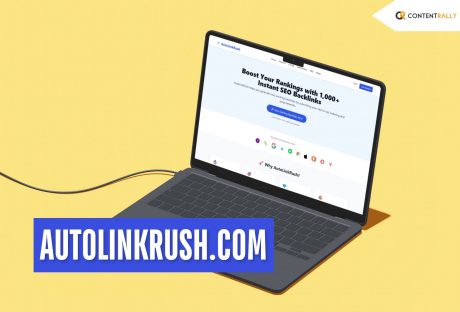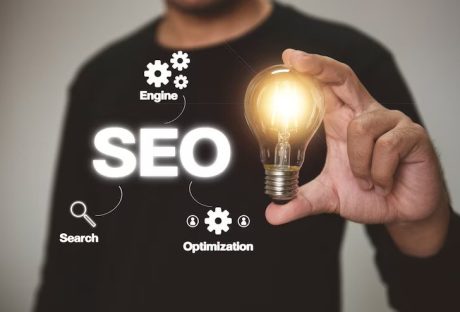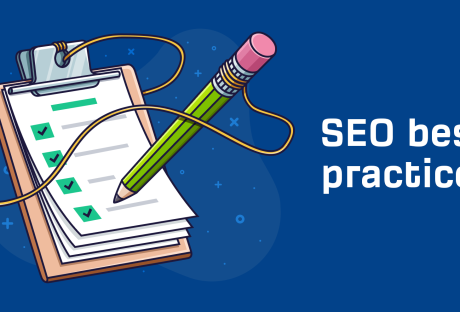If you think of your content strategy as a map, where are you right now? On a good writing day, you might be on a well-maintained, scenic highway. You are cruising with ease and taking in the view. If you find yourself in the midst of writer’s block, you probably feel like you’re in a massive traffic jam. It takes every bit of energy to move one inch forward.
Every content creator and marketer has found themselves in both positions. You’ll have no problem thinking and brainstorming new ideas when writing comes easy. But when you feel stuck and uninspired, it can take everything just to get a single piece published.
While there is no quick fix for writer’s block, there are ways to find inspiration and avoid the traffic jam. Here are three tips for finding hidden topic opportunities for your brand.
1. Identify Competitor Content Gaps
While you don’t want to chase down your top competitors’ every move, you should keep track of what they’re publishing.
Knowing what your competition is doing can strengthen your keyword strategy, allowing you to rank higher on relevant topic areas. It may also improve your overall content quality. Seeing what others are writing about might spark creativity for how you could add to the conversation.
Competitor analysis can identify areas that nobody is currently writing about. As long as the topics are relevant to your brand, these untapped areas are up for grabs.
Applying this analysis will improve your content creation, allowing you to address questions others have missed. Your audience might already be seeking this information. And providing it helps position you as an authority in the space.
However, performing this type of analysis on your own is extremely time-consuming. Consider leveraging software that will conduct a competitive content analysis. This allows you to quickly identify topics others are writing about and where you can fill in the missing pieces.
Moreover, these tools exploit weaknesses and share how to structure your content to ensure it ranks high in SERP.
2. Ask Your Audience
To best serve your audience, it is important to ask them what types of information they want to read. Predicting and guessing the content your core demographic may be most interested in only goes so far. Asking your target audience directly will help you gather fresh insights and perspectives.
To do so, consider launching a survey on your website or including it in your email newsletters. Keep it short and simple. Ask a handful of questions tailored directly to your content. Doing this will give you insight into how to plan your content strategy.
Another way to ask your audience is via social media. Gauge your audience’s interest with an Instagram Stories poll, teasing a few topics to identify which gets the most votes.
You could also drop in an open-ended question sticker on Instagram Stories. Pose the question, “What types of content do you want to see from us?” and note how people respond. It may lead to a new content pillar or angle you and your team have not yet considered.
3. Read Reviews
Customer reviews are an essential component of any business. They help establish trust between the brand and the consumer. Reviews also influence buying decisions: 93% of individuals read online reviews before purchasing. You may already use reviews to improve customer experience and ideate future products; however, reviews can help with content creation.
While browsing through reviews, you may notice a similar question regularly appears. There is a good chance your website does not properly address this question. If this is the case, create a blog post answering this query directly. You might also post a Q&A blog to answer frequently asked questions about certain products or services you offer.
If a reviewer mentions how your product shines compared to a competitor’s, spotlight this feedback for others to read. An article comparing your product to another product can help buyers in the decision-making process. Create an infographic illustrating how your brand’s offering compares to others, and share it on social media.
Reviews can be a goldmine for gaining testimonials, so take the time to read and respond on every platform. Integrating testimonials into your content may help boost potential customers’ trust in your brand.
Post a quote card with a review from a satisfied customer on your social media pages. Or, create a blog post titled “Here’s What Our Consumers Have To Say About Us.” You should plan to update this post routinely, adding more reviews as they come in.
Tips to Improve Content Strategy in 2025
No content strategy or content marketing plan is set in stone. It evolves with the changing market conditions, changes in algorithms, technology, and business plans. Here are some tips businesses can use to improve their content strategy in 2025.
Leverage AI Tools
The most wise thing to do this year is to rely on AI tools for content strategy, marketing, personalized messaging, content creation, and content optimization. It helps reduce lots of time taken throughout the day for content creation.
Focus on Interactive Content
Content doesn’t only have to be written documents, blog posts, brochures, and emails. Quizzes, polls, calculators, and AR/VR experiences are also part of the content, and it’s time to put those into content strategy.
Short Form Video
The best way to drive quick results is through short videos like YouTube shorts, reels, and TikTok videos. Cut long videos into small snippets and share them across channels.
Focus on Sustainability Messaging
There’s a growing focus on environmental and social sustainability. It’s time you made those as a part of your content creation journey. Talk about what helps communities and people build brand trust among audiences.
Build Communities
The best way to gain impressions and readers is through communities. It’s important to build a community of like-minded people who’d love to engage with your content. Go over to Facebook, Quora, and Discord to build a community of audiences who’d love to read your content and engage with them.
Apart from the above-mentioned tips, continue to repurpose your content, publish it across channels, and collaborate with micro and macro influencers to get better results. In the end, it always boils down to analyzing your content strategy and finding newer ways of renovating it.
Content Tips and Takeaways
Knowing what to write about can be challenging at times. Some days you may have a flurry of ideas, creating and publishing content non-stop. On other days, you might bang your head against your keyboard trying to churn out a single piece of usable content.
Finding relevant topic areas often means looking for unanswered questions and solving problems for your target audience.
After all, your audience is the inspiration for creating this content in the first place. Addressing their needs will help to pave a path of informative, engaging, and educational content they can’t wait to consume.
Read Also:
- How to Unlock HP Laptop if you Forgot Login password
- Is ASUS ROG FX503 The Best Gaming Laptop? Know It Here!























